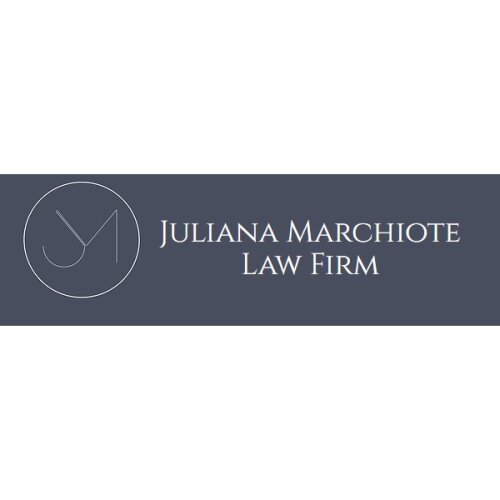Best Real Estate Lawyers in Brazil
Share your needs with us, get contacted by law firms.
Free. Takes 2 min.
Free Guide to Hiring a Real Estate Lawyer
Or refine your search by selecting a city:
List of the best lawyers in Brazil
About Real Estate Law in Brazil
Real estate law in Brazil is a complex and multi-faceted field, governed by a combination of federal, state, and municipal regulations. The Brazilian market is vibrant and diverse, influenced by factors such as urban development, rural land use, and the country's growing economy. Property transactions in Brazil can be highly rewarding but equally challenging without proper legal guidance. The country's real estate market attracts both domestic and international investors, necessitating a solid understanding of the legal landscape.
Why You May Need a Lawyer
There are several situations where individuals and businesses may require legal assistance in real estate matters in Brazil:
- Property Transactions: Buying or selling property involves complex contracts, legal documents, and negotiations that require expert oversight to ensure compliance with local laws and to protect your rights.
- Title and Ownership Disputes: Resolving disputes over property titles and ownership can be complex and may involve historical claims, requiring skilled legal intervention.
- Landlord-Tenant Issues: Legal guidance is often needed to navigate leases, disputes, and property management issues in rental agreements.
- Zoning and Land Use: Understanding zoning laws and land use restrictions is crucial, especially for development projects or changes in the use of a property.
- Foreclosure and Debt Recovery: Legal expertise can help manage foreclosure actions and recover debts in compliance with Brazilian laws.
Local Laws Overview
Brazilian real estate law encompasses a range of legal statutes and principles. Key aspects include:
- Civil Code: The Brazilian Civil Code outlines fundamental property rights, including ownership rules, easements, and condominium regulations.
- Statute of the City: This federal law governs urban planning and property development, focusing on sustainable development and public interest priorities.
- Rural Land Laws: Specific regulations apply to rural properties, addressing issues like agrarian reform and environmental preservation.
- Registry Systems: All property transactions must be registered with the Real Estate Registry Office to validate ownership and other legal interests.
Frequently Asked Questions
What documents do I need to buy property in Brazil?
To buy property in Brazil, you'll need an identity document, CPF (Cadastro de Pessoas Físicas) number, proof of income, marriage certificate (if applicable), and a purchase agreement.
Can foreigners buy real estate in Brazil?
Yes, foreigners can buy urban properties in Brazil with similar rights to Brazilians. However, there are restrictions on rural properties and certain areas near borders.
What is the role of a notary in Brazilian real estate transactions?
A notary (Cartório) provides authentication services, formalizes contracts, and ensures the legality of documentation in property transactions.
Is it necessary to conduct a property title search?
Yes, conducting a title search is crucial to confirm ownership and check for any encumbrances or legal claims against the property.
What are the common costs associated with buying property in Brazil?
Common costs include taxes (such as ITBI), notary fees, registration fees, and legal fees. It's advisable to budget these into your transaction.
How long does it take to complete a real estate transaction?
Real estate transactions can take several weeks to months, depending on the complexity, due diligence, and bureaucratic processes involved.
What are the tax implications of owning property in Brazil?
Property owners are subject to taxes such as IPTU (for urban properties) or ITR (for rural properties), as well as potential capital gains taxes upon sale.
What is a Usucapião claim?
Usucapião is the legal process to claim ownership of property based on continuous possession for a set period, under conditions established by law.
Are there any environmental regulations affecting property transactions?
Yes, environmental laws, particularly for rural properties and developments within ecological zones, must be considered during transactions.
What should I consider when renting property in Brazil?
Consider the lease terms, security deposit regulations, tenant rights, and landlord obligations as outlined by Brazilian law and the specific contract.
Additional Resources
For more information and assistance, consider these resources:
- Federal Government Agencies: The Ministry of Cities and other federal bodies provide guidelines and regulations on real estate matters.
- Real Estate Registry Offices: These offices are essential for verifying property ownership and recording transactions.
- Brazilian Bar Association (OAB): Offers directories of qualified real estate attorneys and legal guidance.
- Public Notaries (Cartórios): Provide legal services crucial to real estate transactions.
Next Steps
If you need legal assistance in real estate, follow these steps:
- Research Qualified Lawyers: Look for lawyers specializing in Brazilian real estate law with experience handling similar cases.
- Schedule Consultations: Meet with several lawyers to discuss your case, understand their approach, and assess costs.
- Gather Documents: Compile all necessary documents related to your property or transaction to provide to your lawyer.
- Outline Objectives: Clearly outline your goals and concerns to your lawyer to ensure tailored legal advice.
- Follow Legal Guidance: Maintain open communication with your lawyer, follow their advice, and stay informed of your case's progress.
Lawzana helps you find the best lawyers and law firms in Brazil through a curated and pre-screened list of qualified legal professionals. Our platform offers rankings and detailed profiles of attorneys and law firms, allowing you to compare based on practice areas, including Real Estate, experience, and client feedback.
Each profile includes a description of the firm's areas of practice, client reviews, team members and partners, year of establishment, spoken languages, office locations, contact information, social media presence, and any published articles or resources. Most firms on our platform speak English and are experienced in both local and international legal matters.
Get a quote from top-rated law firms in Brazil — quickly, securely, and without unnecessary hassle.
Disclaimer:
The information provided on this page is for general informational purposes only and does not constitute legal advice. While we strive to ensure the accuracy and relevance of the content, legal information may change over time, and interpretations of the law can vary. You should always consult with a qualified legal professional for advice specific to your situation.
We disclaim all liability for actions taken or not taken based on the content of this page. If you believe any information is incorrect or outdated, please contact us, and we will review and update it where appropriate.
Browse real estate law firms by service in Brazil
Brazil Attorneys in related practice areas.
Browse real estate law firms by city in Brazil
Refine your search by selecting a city.















